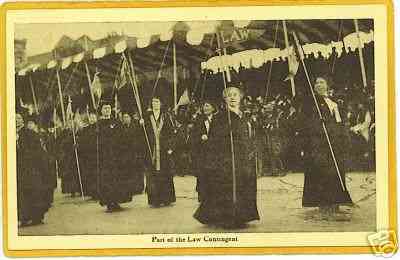Some Nineteenth Century Thoughts on Legal Ethics:
The lawyer shuns their opinion who regard the professors of the law as an order whose interests are at variance with those of society at large, and therefore to be protected by walls and bulwarks raised in self defence. Lawyers were appointed to live for society, not society framed for them to live by. Hence in those rules which they make for their conduct towards one another and towards their fellow citizens, the lawyer regards those as of no binding force which clash with the welfare of society at large: and though to the other rules of his order he pays that deference which courtesy toward his fellow labourers in the work of justice demands, he ever remembers the good of society and the principles of equity whereby to relax their rigour...In all such matters the lawyer looks to the intent of the rule; and so the abatements he makes from the rigour of it be made in honour, with a clean conscience, without left- handed designs of self-interest or avarice, he cares not what censure he may incur from those who, considering the privileges of their order as of more value than the good of society for which alone that order exists, however wise they be in their own eyes, to others resemble the fool who arrogantly thought he played on the organ when he only blew the bellows.
Edward O’Brien, The Lawyer, His Character and Holy Rule of Life: After the Manner of George Herbert’s Country Parson (Philadelphia: Carey & Hart 1843) [first published in London by Pickering in 1842].


